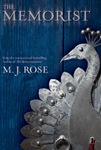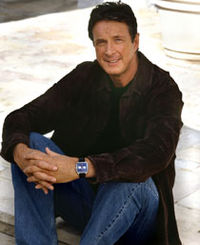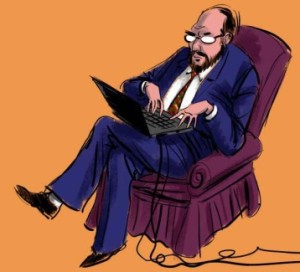By guest blogger, M.J. Rose
 Once upon a time, my husband and I went to Vienna on a vacation and fell in love. Not with each other – we’d already done that – but with the city.
Once upon a time, my husband and I went to Vienna on a vacation and fell in love. Not with each other – we’d already done that – but with the city.
Growing up in Manhattan you don’t bump into history on every street corner – mostly you’re bumping into other people or great shopping or eating experiences. In New York you have to go out of your way to find eighteenth century history, but it’s still alive on every block in Vienna. There’s so much of it you are literally breathing it in. Arts and sciences have flourished here for centuries and whatever your passion you can visit museums, monuments and memorials to art, music, architecture, literature philosophy and psychology.
And visit them we did including making visits to homes of many famous people who’d once lived there, and since my husband is a musician, the trip turned out to be what I now jokingly call our Beethoven pilgrimage.
There are several of the great composer’s residences in the city proper and its environs, and we visited every one of them as well as churches, cafes and music halls Beethoven frequented. We walked the streets he walked following the routes he took and spent one day wandering the woods he wandered during the summers he spent in Baden, a spa town an hour out of the city.
 But it was in the Heligenstadt house that the idea for my novel, The Memorist, was born.
But it was in the Heligenstadt house that the idea for my novel, The Memorist, was born.
The house at Probusgasse 6 is in a neighborhood called Heligenstadt at the bottom of the Kahlemberg, which in Beethoven’s time was outside the city and filled with vineyards that are still growing there. And it was there at the end of the summer of 1802 that the 31-year-old Beethoven wrote the heart-wrenching Testament to his two brothers documenting his anguish at the onset of his terrible deafness.
The upstairs of this small apartment is open to the public, and we walked through the ordinary rooms where he lived. Wandering over to the window I looked down at a simple courtyard where there was a single tree growing.
I stared at the gnarled, twisted trunk and the rich healthy verdant green leaves and realized that Beethoven must have once stood there and looked down at that same tree. Suddenly the composer’s ghost was standing there with me looking out the window.
Later I told my husband what I had been thinking and he said: “You’re going to write about that aren’t you?” Until that moment I hadn’t thought about it but after he said it, I couldn’t stop thinking about it.
 At home I read several biographies about Beethoven and in one discovered the great composer had been fascinated with Eastern philosophy which includes a strong belief in reincarnation. His own notebooks contain quotes of passages from Bhagavad-Gita. As well as a quote from William Jones that was included in his Hymn to Narayena; "We know this only, that we nothing know."
At home I read several biographies about Beethoven and in one discovered the great composer had been fascinated with Eastern philosophy which includes a strong belief in reincarnation. His own notebooks contain quotes of passages from Bhagavad-Gita. As well as a quote from William Jones that was included in his Hymn to Narayena; "We know this only, that we nothing know."
And with that piece of information the idea at the heart of my tenth novel revealed itself.
The Memorist is not about Ludwig Van Beethoven although he does play a small part in it. Rather it’s a suspense novel about a woman on a search for her own ghosts, but it was Beethoven’s spirit that inspired the book and his everlasting gifts to us are at the heart of the mystery I attempted to unravel.
The Memorist has been chosen as the People Magazine Pick of the Week (11/10), garnered starred reviews from Publishers Weekly, Library Journal, is on the November Indie Next list. Please visit MJRose.com and Reincarnationist.org to read an excerpt and find out more about M.J. Rose and her work.











